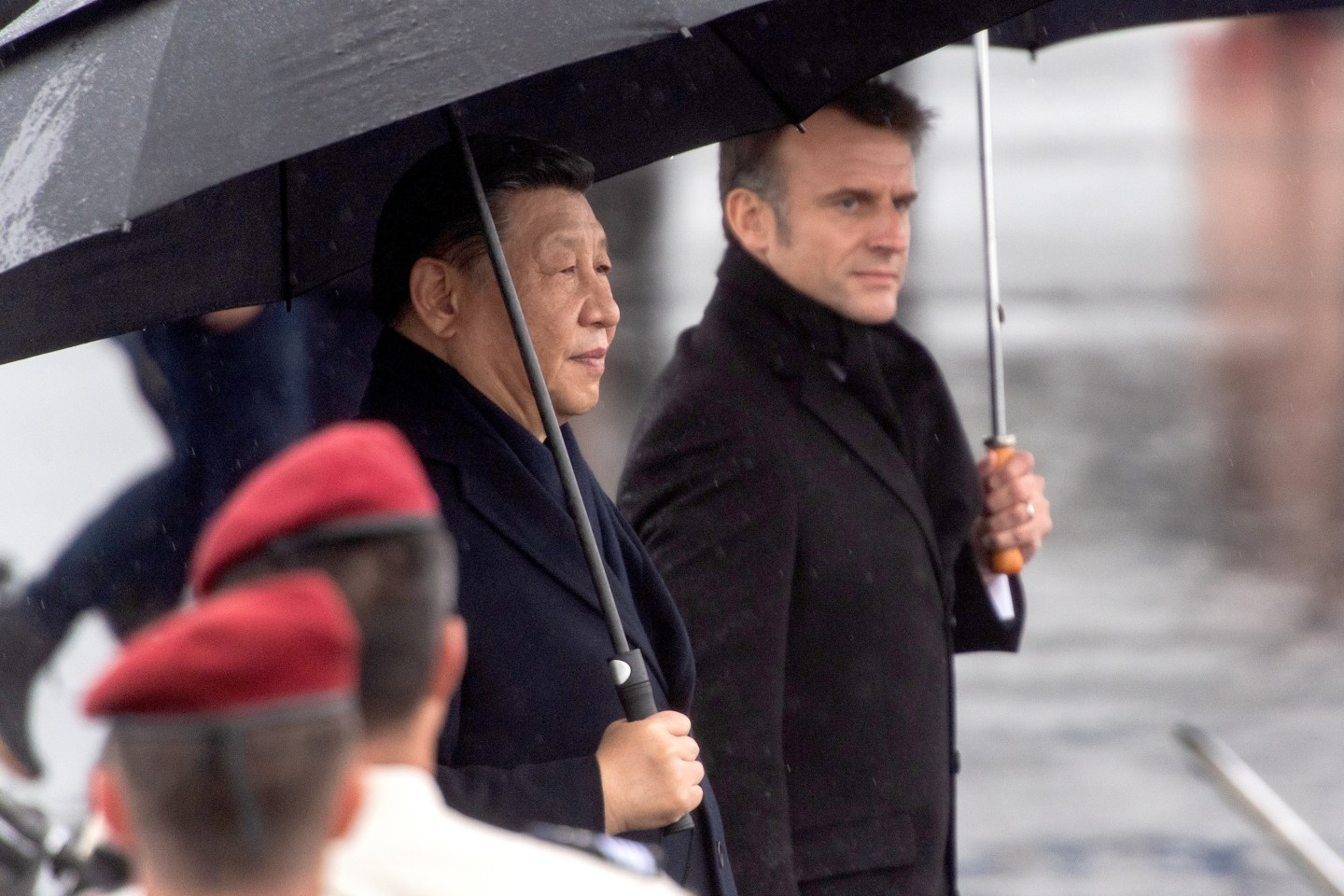Good morning. Clay Chandler here, writing from Hong Kong.
All year senior officials from the U.S. and Europe have sought—without success—to persuade counterparts in Beijing that China has an “overcapacity problem.”
In Beijing last month, U.S. Treasury Secretary Janet Yellen warned that President Joe Biden could not allow U.S. manufacturers to be “decimated” by a “flood” of “artificially cheap Chinese products.” China’s foreign ministry bristled.
Two weeks later, the ministry rebuked Secretary of State Antony Blinken for using the O-word on his Beijing visit and accused the U.S. of “hyping up a false narrative.”
Chinese President Xi Jinping dismissed the idea entirely when he met with French President Emmanuel Macron and European Commission President Ursula von der Leyen this week. There is “no such thing as ‘China’s overcapacity problem,’” he said.
But the issue can’t be wished away.
Western leaders have focused their fears on solar panels, lithium batteries, and electric vehicles. China exported over $138 billion worth of such products last year, up 30% from 2022. Biden will reportedly impose additional tariffs on all three sectors next week.
In solar, China now accounts for 80% of global capacity. In 2023, China’s production capacity for finished solar modules soared to more than double what the world installed, forcing producers to slash prices. In Germany and the Netherlands, solar panels are so cheap they’re being used to build garden fences.
Similarly, China now makes 70% of the world’s lithium-ion batteries. Last year, Chinese exports jumped 28% to $65 billion.
But Western leaders are most worried about EVs. China exported 1.2 million “new energy” vehicles last year, making it the world’s largest exporter of cars. Hardly any of those vehicles were sold in the U.S. thanks to a 25% tariff. But in the EU, where the tariff is 10%, China’s EV market share tops 8% and could reach 20% by 2027. EU regulators may call for higher duties. The Rhodium Group, a research firm, estimates Chinese EVs would still be “highly attractive” to European buyers at a tariff of 30%.
Chinese officials maintain China’s green energy companies export so much because they’re so efficient. Sure, China has provided state support for clean energy companies—but the U.S. and Europe do that too. Besides, many argue, China’s clean energy expansion is helping the world meet critical sustainability goals and should be celebrated, not feared.
In Foreign Affairs, Rhodium’s Daniel Rosen and Logan Wright contend those arguments miss the larger point: China’s economy has stalled, and instead of prioritizing domestic demand, Beijing continues to prop up Chinese companies and encourage them to ship excess production overseas. The essay’s grim conclusion: China, Europe, and the U.S. are locked “on a dangerous course of trade confrontation in 2024, with a high probability of trade defense actions.”
More news below.
Clay Chandler
clay.chandler@fortune.com
TOP NEWS
More Boeing whistleblowers
The death of two Boeing whistleblowers is prompting more employees to come forward with concerns. “More than ten whistleblowers who are our clients from Boeing, Spirit and another supplier besides Spirit will speak up in the near future,” says Brian Knowles, the attorney who represented both John Barnett and Joshua Dean. This week, a new whistleblower from Spirit AeroSystems came forward, alleging that the Boeing supplier regularly shipped fuselages with defective parts. Fortune
Yapping at the office
Older employees and managers may grumble at younger workers’ tendency to talk incessantly at the office, but experts say they should get used to it. After years stuck at home, younger employees “haven’t had the chance to actually learn and have that give-and-take in work relationships,” says John Hackston, head of thought leadership at Myers-Brigg Company. And Gen Z’s penchant for yapping may be good for office culture, helping spark new ideas and foster a sense of belonging. Fortune
Why vets are getting more expensive
Pet health care is getting more expensive, with the price of veterinary care rising 32% over the past four years. Some point to the entry of private equity firms, which started snapping up vet clinics in 2020 and now own around 30% of the market. The rising cost of care is pushing owners to give up their pets: Almost 2 million animals were surrendered to shelters in 2023. Fortune
AROUND THE WATERCOOLER
TikTok will automatically label AI-generated posts using Adobe’s Content Credentials by Sharon Goldman
Google employees grill Sundar Pichai and CFO Ruth Porat on why they’re not getting pay rises amid blowout earnings by Eleanor Pringle
‘Housing has hit rock bottom’: Top real estate CEO says high home prices are shutting people out of the market by Alena Botros
Amid Tesla’s bloodletting, top exec sends Musk a message: The company has ‘taken its pound of flesh’ by Amanda Gerut
Commentary: I’m the CTO of Canada’s biggest airport. AI isn’t destroying jobs in aviation—it’s giving us superpowers to improve air travel by Brian Tossan
Even after cramming its video game with Walmart ads and billboards, Roblox struggles to tap into the wallets of extremely online Gen Alpha by Sasha Rogelberg
This edition of CEO Daily was curated by Nicholas Gordon.













